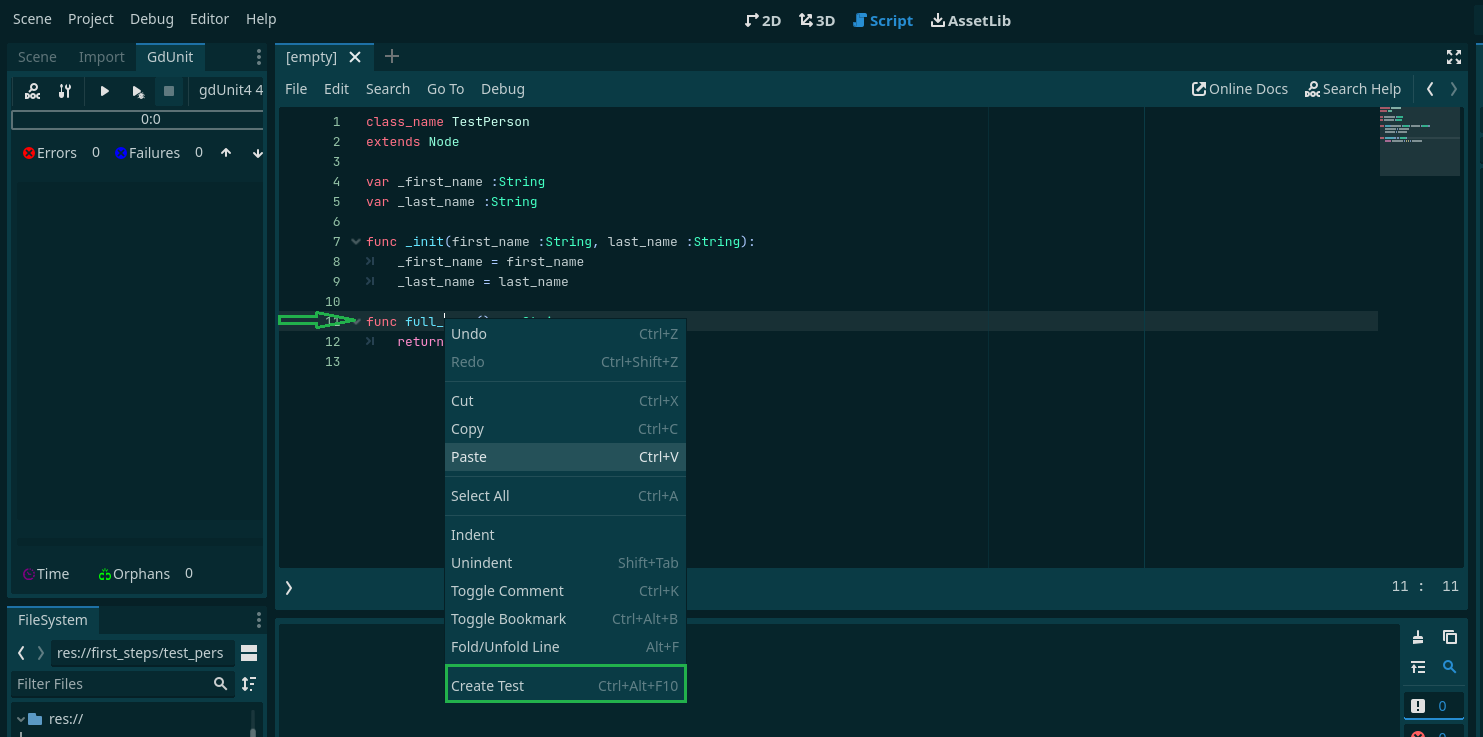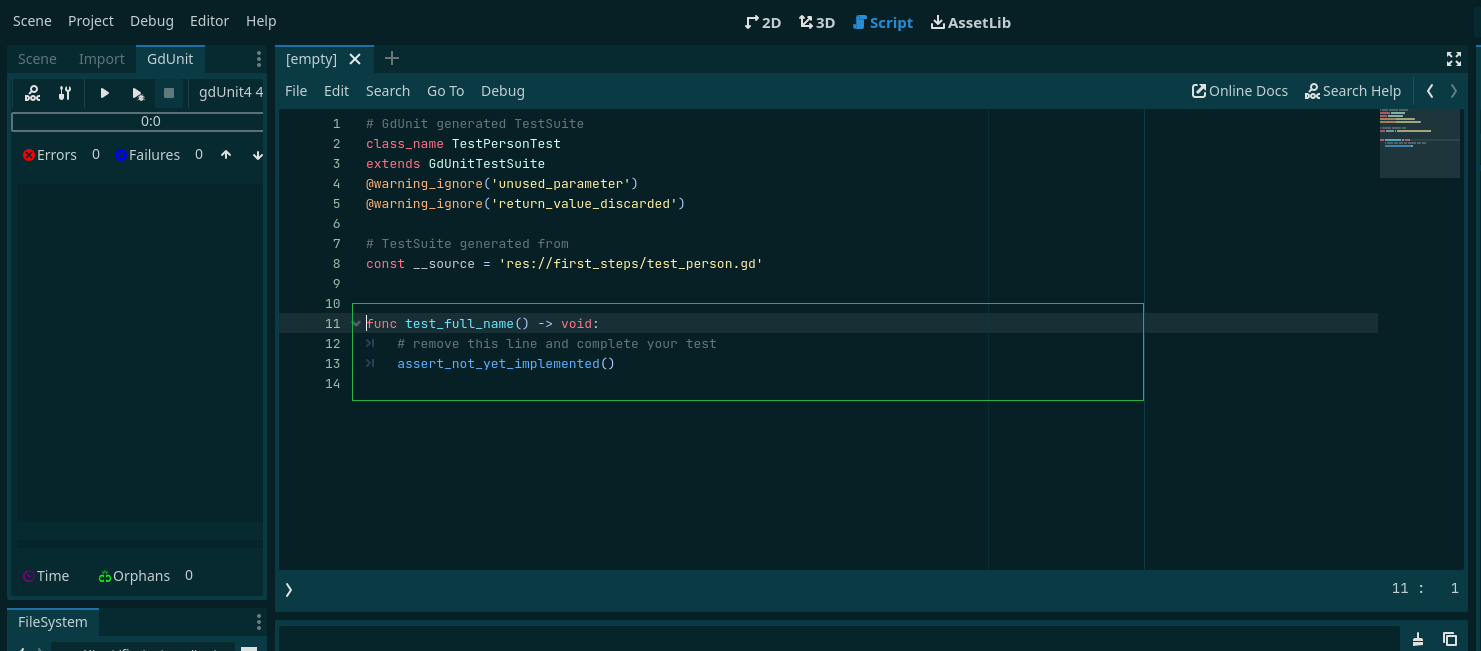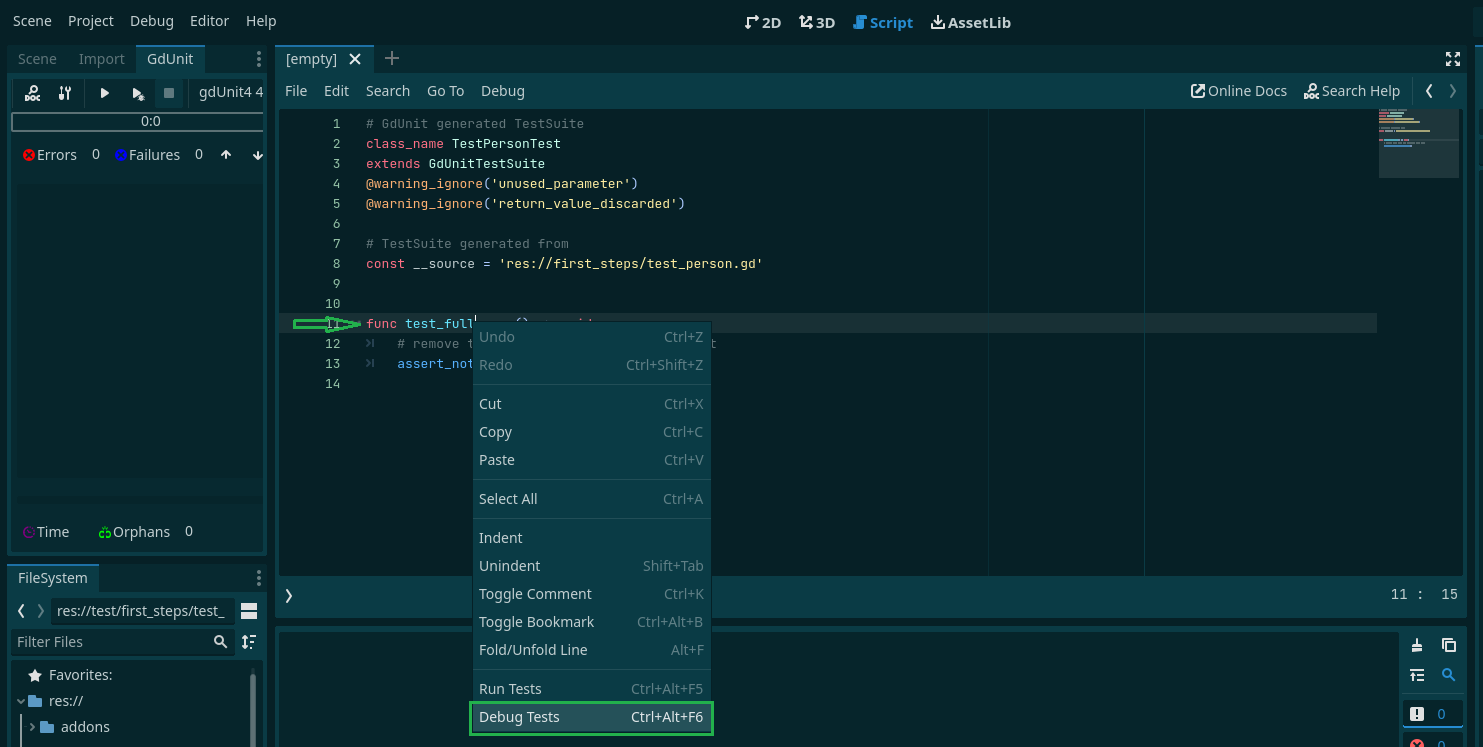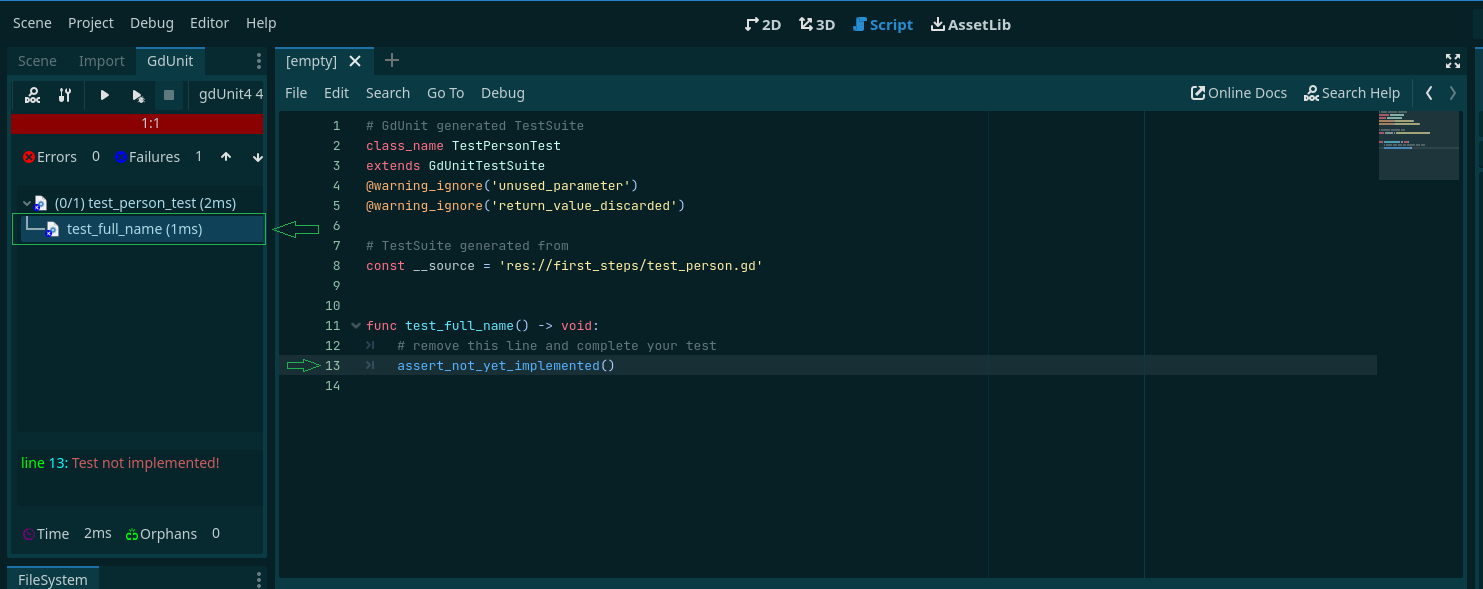Create Your First Test
Before You Start
Create a new folder called first_steps in your project’s root directory and copy the following class into it. It should be located at res://first_steps/test_person.gd.
-
class_name TestPerson extends Node var _first_name :String var _last_name :String func _init(first_name :String, last_name :String): _first_name = first_name _last_name = last_name func full_name() -> String: return _first_name + " " + _last_name
Creating a Test
To create a test in GdUnit4, you can use the built-in “Create Test” function. Follow these steps:
- Open the script that you want to test.
- Right-click on the function that you want to create a test for.
- Click on “Create Test” from the context menu.

We have selected the full_name function to generate a test for it. The test has been automatically created using the built-in Create Test function. Congratulations, you have now created your first test!
More detailed information about naming conventions and the definition of test cases can be found here
The generated test case should look like this: 
Execute Your Test
After creating your first test, you can execute it by selecting it in the editor with the right mouse click and then opening the context menu to click on Run Tests or Debug Tests. 
The test run is visualized in the GdUnit4 inspector, allowing you to inspect the test results. 
As you can see, your first test has resulted in a failure: “Test not implemented!” This is because a generated test first fails with this message since the assertion assert_not_yet_implemented() is used in the test by default.
The failure report message are:
line 13: Test not implemented!
You can double-click on the failed test to jump directly to the test failure. 
Complete Your First Test
To complete your test, you must specify what you want to test by using assertions. GdUnit provides a large number of assert functions to compare an actual value with an expected value.
In this case, we did a test for the function full_name() which has a return type of String. To verify the return value of the function, we can use the assert_str() function and replace the assert_not_yet_implemented() in our test with it:
-
func test_full_name() -> void: var person = load("res://first_steps/test_person.gd").new("King", "Arthur") assert_str(person.full_name()).is_equal("King Arthur") -
func test_full_name() -> void: var person := TestPerson.new("King", "Arthur") assert_str(person.full_name()).is_equal("King Arthur")
Now, run the test again by pressing the ReRun Debug button in the inspector.
 For more details about the inspector buttons, see Button Bar
For more details about the inspector buttons, see Button Bar
The test failure is fixed but now we get a warning!

The warning message “Detected <1> orphan nodes during test execution” indicates that we have forgotten to release an object. It means that we still have to release the used object (in this case, TestPerson) after the test to avoid memory leaks.
To release objects manually, we can use the free() function of the object. Another way is to use the included auto_free tool, which automatically releases all allocated objects at the end of a test.
-
func test_full_name() -> void: var person := TestPerson.new("King", "Arthur") assert_str(person.full_name()).is_equal("King Arthur") person.free() -
func test_full_name() -> void: var person :TestPerson = auto_free(TestPerson.new("King", "Arthur")) assert_str(person.full_name()).is_equal("King Arthur")
GdUnit offers a wide range of Asserts for all basic built-in types and much more. A collection of tests is called a Test Suite in GdUnit.
You can find more details about creating Test Suite’s here.
Now, run your test again and it should complete successfully.
